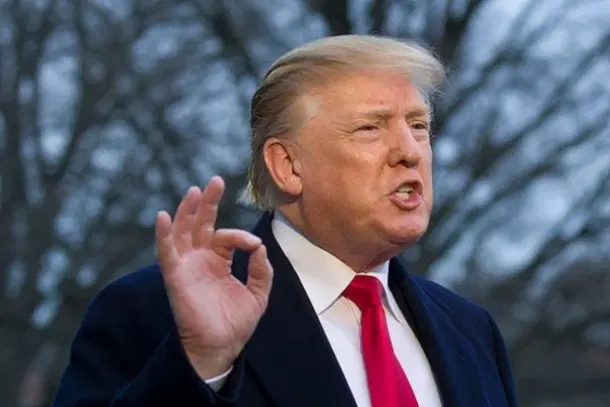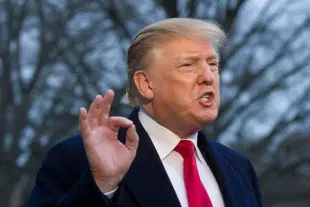News Brief
Trump Revives And Expands Travel Ban After Colorado Attack, Barring Entry From 12 Nations Citing Security Risks
Kuldeep Negi
Jun 05, 2025, 08:15 AM | Updated 08:15 AM IST
Save & read from anywhere!
Bookmark stories for easy access on any device or the Swarajya app.


Days after the attack on pro-Israel demonstrators in Colorado, US President Donald Trump signed a proclamation on Wednesday (4 June) banning travel from 12 countries, citing national security concerns, India Today reported.
The proclamation imposes a complete travel ban on nationals from 12 countries—Afghanistan, Myanmar, Chad, Congo (Republic), Equatorial Guinea, Eritrea, Haiti, Iran, Libya, Somalia, Sudan, and Yemen.
In a Truth Social post announcing the crackdown on immigrants, Trump referenced Sunday’s Colorado attack where an Egyptian man set fire to peaceful protesters seeking the release of Israelis held hostages in Gaza.
According to a statement from the White House, the 12 countries facing the total ban were found "to be deficient with regards to screening and vetting and were determined to pose a very high risk to the United States".
The ban is set to take effect 12.01 am on Monday (9 June).
Additionally, the Trump administration also announced partial entry restrictions on visitors from Burundi, Cuba, Laos, Sierra Leone, Togo, Turkmenistan and Venezuela.
These include limitations on both immigrant and non-immigrant visas such as B-1, B-2, F, M, and J categories, primarily due to high visa overstay rates or insufficient collaboration with US law enforcement agencies.
The measure expands Trump’s original travel ban from 2017, which had targeted seven Islamic nations, now encompassing more countries and broader restrictions.
"We cannot have open migration from any country where we cannot safely and reliably vet and screen... That is why today I am signing a new executive order placing travel restrictions on countries including Yemen, Somalia, Haiti, Libya, and numerous others," Trump said in his proclamation.
Reasons for the ban range from Taliban's control in Afghanistan to Iran and Cuba’s alleged terror links, as well as overstay issues in Chad and Eritrea.
Chad’s B1/B2 visa overstay rate stood at 49.54 per cent, while Eritrean holders of F, M, and J visas overstayed at a rate of 55.43 per cent, according to official data.
“We will restore the travel ban, some people call it the Trump travel ban, and keep the radical Islamic terrorists out of our country that was upheld by the Supreme Court," Trump said.
During his first term, Trump issued an executive order in January 2017 banning travel to the US by citizens of seven Muslim-majority nations including Iraq, Syria, Iran, Sudan, Libya, Somalia, and Yemen.
Biden revoked the policy in 2021, labeling the move “a stain on our national conscience".
Also Read: Population Census-2027 To Be Conducted In Two Phases Along With Enumeration Of Castes: Home Ministry
Kuldeep is Senior Editor (Newsroom) at Swarajya. He tweets at @kaydnegi.





